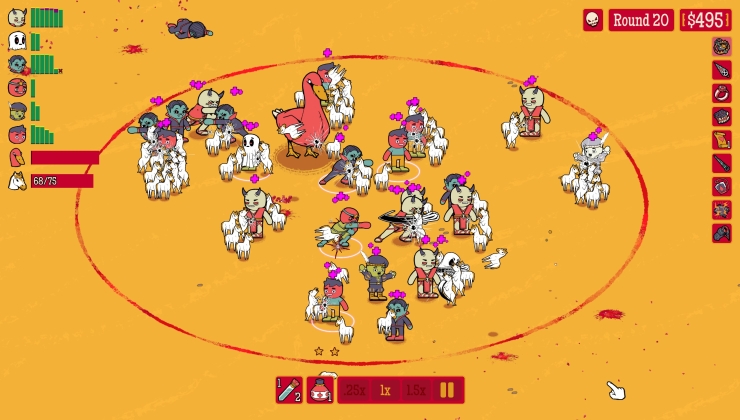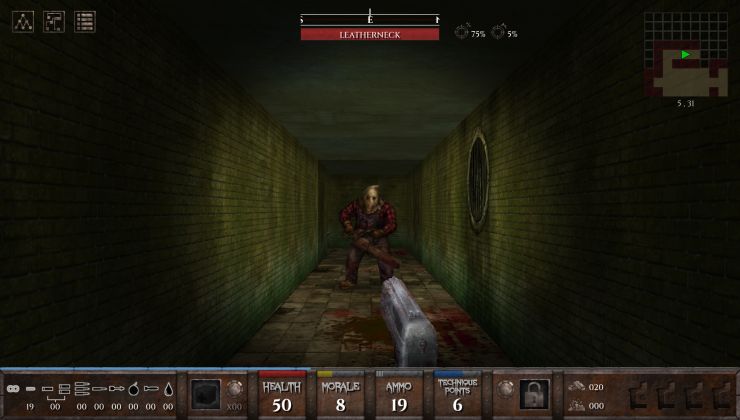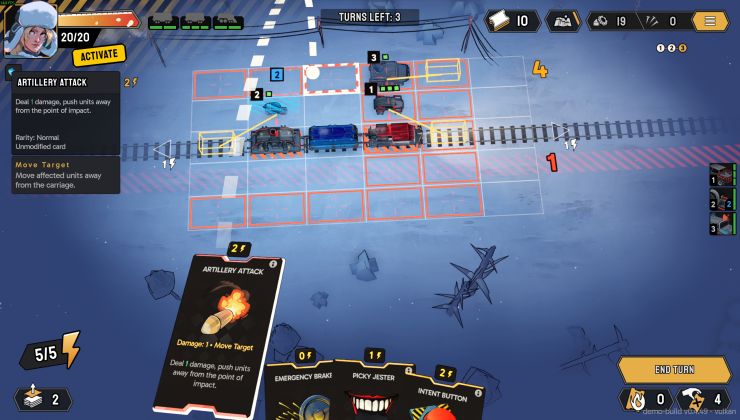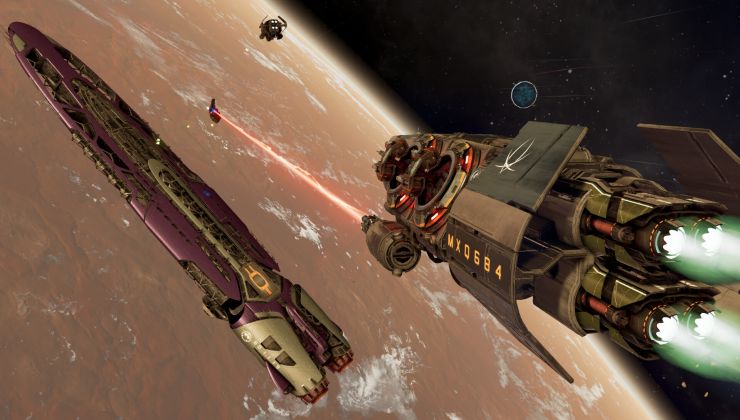After some recent weirdness where March saw a big drop, the Steam Hardware & Software Survey for May 2023 is now showing the Linux share at a multi-year high.
Checking back over our Steam Tracker where we're keeping tabs on it over time, we've not seen the Linux user share being as high as it is right now in at least 6 years. The Linux user share is now on 1.47% with macOS on 2.39% and Windows at 96.14%,
When filtering the results over to just Linux here's the current most popular distributions for Steam gaming:
- SteamOS Holo 64 bit 25.32% + 2.55%
- Arch Linux 64 bit 9.99% + 0.20%
- Ubuntu 22.04.2 LTS 64 bit 9.72% - 1.12%
- Freedesktop.org SDK 22.08 (Flatpak runtime) 64 bit 7.27% - 0.34%
- Manjaro Linux 64 bit 5.79% - 0.46%
- Linux Mint 21.1 64 bit 5.46% + 0.49%
- Pop!_OS 22.04 LTS 64 bit 3.53% - 0.33%
- Other 32.92% - 0.98%
In terms of absolute numbers we can take an educated guess here based on the last time Valve gave out their monthly active users, which they said was 132 million back in March 2022. So based on that 1.47% it would mean around 1,940,400 estimated monthly active users for Linux. However, Valve did not give out the number for the past year, and we know Steam is growing all the time, so in reality it's probably much higher.
Quoting: Geppeto35Again, about my experience: playing on linux 80% of my time, switching for some games on my windows session for ~20%. I'm a gamer: playing nearly 2 to 3h per days. This was the exactly 12th time last month, since 2012 (I begun to count), that Steam asks me my config stuff while I'm on my windows session. Was only asked on linux one time while being on my laptop during a trip abroad (I nearly play around 10 days per year on my laptop, always when moving from house).Valve has no reason to _ask_ you about your platform they already know that because they have to serve you updates based that. That's ignoring all the other channels they could use to figure that out.
I'm a probabilist for my job, this succession of events are uneven. Steam MUST ask users to declare their prefered plateform at some point, before (to be sure to be surveyed when on this machine) or during the survey at least, especially considering that it matters for the market.
So while the hardware survey may not be accurate, pretty sure the platform usage data is.
Quoting: Mountain ManIt's somewhat disheartening that despite a big multi-year push from Valve, Linux still sits behind MacOS at less 1.5% market share.It's OK, this was always going to be a marathon and not a sprint. The important thing is that Linux's marketshare is growing and as long as it maintains that direction, this can take as long as necessary.
2 years ago, MacOS was closer to 3%, and Linux was back at 0.8%. Now it's more like 1.5% vs 2.4%. We're much closer and still gaining ground.
Quoting: gradyvuckovicAlso while the percentage is relatively low, remember 1.5% market share now is many more people than a few years ago as the user base has grown considerably. I think the English tracker is more encouraging as we can see some big movement.Quoting: Mountain ManIt's somewhat disheartening that despite a big multi-year push from Valve, Linux still sits behind MacOS at less 1.5% market share.It's OK, this was always going to be a marathon and not a sprint. The important thing is that Linux's marketshare is growing and as long as it maintains that direction, this can take as long as necessary.
2 years ago, MacOS was closer to 3%, and Linux was back at 0.8%. Now it's more like 1.5% vs 2.4%. We're much closer and still gaining ground.
Quoting: EikeWith Flatpak you can have the same stack on every distro and a very recent version of Mesa regardless of the distribution without compromising the system. You can transform Debian Stable into a gaming system without break anything.Quoting: ZlopezIt's also good to see that Flatpak Steam is so widely used. :-)Why? The reason for Flatpak that I'm aware of is getting newer software, but Steam is updating itself...
On immutable systems like Silverblue, Kinoite and MicroOS (now Aeon and Kalpa) the Flatpak package makes a lot of sense.
Wake me up when actual desktop Linux users reach a milestone that means something. I'd say 25%, but I'll settle for passing Mac desktop users in the meantime. I'll be surprised if either happens in my lifetime. Been waiting over 20 years already, no real sign anything is going to change.
Quoting: adolsonCounting Steam Deck as Linux users is reminiscent of people trying to say Android device users count as Linux users. I bet the majority of people buying the Steam Deck don't know anything about Linux and don't care, they just want Steam on the go.No, it really isn't, for fundamental reasons both technical and strategic.
Starting from technical: Steam Decks use a fairly standard Linux distribution on which one can run normal Linux software. You can load LibreOffice or the GIMP or whatever onto SteamOS and they will run. SteamOS has a normal Linux kernel, a normal GNU toolchain, and a normal desktop environment (KDE). So technically, a Steam Deck user simply is a Linux user, whether they happen to realize it or not (lots of Windows users don't realize their OS is Windows). Android, on the other hand, has Linux kernel, but no GNU; it is Linux, but not GNU/Linux. And it won't run Linux software.
Moving on to strategic: Because the Steam Deck runs a fairly normal Linux distribution, most things, primarily but not exclusively games, that run on it will also run on desktop Linux. Because of that, they represent the same development target and market. So if my potential market has 1% desktop Linux users and 3% Steam Deck users, and I do the exact same things to target those two segments, they are in effect one segment of 4%. The likelihood of at least game software being made to target Linux does grow with the number of Steam Deck users, whereas it does not grow with the number of Android users.
In my opinion there is a knock-on effect from the games, in that if Linux is seen as a viable gaming platform, the chances of people adopting it for their desktop is higher.
Secondarily, the existence of the Steam Deck, running a fairly normal GNU/Linux distribution, also adds impetus to some aspects of Linux software development; companies like Valve have motivation to improve certain bits of Linux relating to graphics, KDE user experience, sound and so on.
So no, your parallel is false. Steam Deck users do represent Linux adoption in most important ways, whereas Android users do not.
Last edited by Purple Library Guy on 4 Jun 2023 at 5:37 pm UTC
Quoting: Purple Library GuyThe likelihood of at least game software being made to target Linux does grow with the number of Steam Deck usersTime will tell. It's still early days, but so far, we're seeing the opposite effect due to Proton. Which, by the way, was the worry back in the Loki/LGP days (when I switched to Linux) with Wine/WineX and later on, Cedega.
In my opinion there is a knock-on effect from the games, in that if Linux is seen as a viable gaming platform, the chances of people adopting it for their desktop is higher.Indeed, that is just an opinion. I hope you're right, but again, time will tell.
Steam Deck users do represent Linux adoptionNot knowingly, in most cases, which was my point.
Again, this is all pretty theoretical at this point, and even with Steam Deck, the numbers are abysmal - as they have always been. I'm still not seeing anything to celebrate at this point in time.
Quoting: adolsonIt's still early days, but so far, we're seeing the opposite effect due to Proton.No, we aren't. The release of Proton had no effect whatsoever on the proportion of Linux-native games that are released. The growth in the Linux market has since caused an increase in the proportion of Linux-native games that are released.
Quoting: adolsonSo, first, as CatKiller points out, we are not seeing the opposite effect. I myself assumed that Proton effect would exist, but it does not seem to be happening.Quoting: Purple Library GuyThe likelihood of at least game software being made to target Linux does grow with the number of Steam Deck usersTime will tell. It's still early days, but so far, we're seeing the opposite effect due to Proton. Which, by the way, was the worry back in the Loki/LGP days (when I switched to Linux) with Wine/WineX and later on, Cedega.
Second, that's a separate argument. Assume Proton reduces the chance of games being released for Linux. Market share still increases it--Linux with Proton at 10% would get more releases than Linux with Proton at 3%. And, the Steam Deck still represents Linux market share in the game market. So counting Steam Decks as Linux users still is not at all the same as counting Android users as Linux users. So even if this point were accurate (which, to my surprise, it does not seem to be), your original claim would still be wrong.
Quoting: adolsonWhether it's knowingly or not doesn't matter much. If they add to the market they add to the market. Your analogy, Android, do not. Steam Decks do.Quoting: Purple Library GuySteam Deck users do represent Linux adoptionNot knowingly, in most cases, which was my point.
Although it has surprised me how many people do seem to be aware of it. So for instance, I was amazed that in an article I looked at about the new Samsung Steam-Deck-like-thing that was not on a Linux site, comments about how it would work worse than the Steam Deck because Windows is crappy at doing that kind of thing were quite prevalent.
Quoting: adolsonAgain, this is all pretty theoretical at this point, and even with Steam Deck, the numbers are abysmal - as they have always been. I'm still not seeing anything to celebrate at this point in time.This is the one thing you've said I can't argue with--partly because it's true, growth is there but not that high yet, and partly because what kind of numbers are exciting is pretty subjective. I can't tell you what you should be excited by.
Quoting: Purple Library GuyThis is the one thing you've said I can't argue with--partly because it's true, growth is there but not that high yet, and partly because what kind of numbers are exciting is pretty subjective. I can't tell you what you should be excited by.I can tell you what I'll be pleased with (although I wouldn't go as far as "excited") - and it should happen quite soon - the Linux share being higher than "Windows earlier than Windows 10." That they're completely unsupported and yet have higher marketshare than Linux is a real drag. Passing that will be nice.
Passing Mac OS to be the biggest non-Windows PC gaming market will take a bit longer, and won't make too much practical difference IMO; Linux is already an easier target than Mac OS for those that are interested in a multiplatform PC release, so it also being bigger won't swing the needle much more.
Passing 5% would get me quite excited, and passing 10% would make a big practical difference, I think, to the amount of game developer attention we can command.
Quoting: EikeWhy? The reason for Flatpak that I'm aware of is getting newer software, but Steam is updating itself...Personally, I want to see more focus on Steam Flatpak. It's just more convenient to have a way of installing apps that works across distribution families. Plus, Flatpak is oriented towards GUI apps, and as it improves, it would have less issue with communicating between apps compared to Nix with its wrapping, Distrobox with podman/docker limitations, or Conty/AppImage/runimage with their specific image-based limitations.
Flatpak-Sync is also coming soon, so that'd make syncing between devices even easier compared to the current jank git-based solution I have.
It's not about Steam specifically -- it's about the ecosystem, and Flatpak's ecosystem is getting really good for my preferred usage.
Quoting: adolsonTime will tell. It's still early days, but so far, we're seeing the opposite effect due to Proton. Which, by the way, was the worry back in the Loki/LGP days (when I switched to Linux) with Wine/WineX and later on, Cedega.For native games, I think the problem is that targeting Linux is such a moving target, that unless the engine is purpose-built for it, devs won't pursue it. Indie games has been pretty good in doing it, but then you got issues like the recent glibc issue, which really doesn't help.
OTOH, people does target Steam Deck more now, which ensures some form of compatibility with Linux devices. With Steam's Linux Runtime Container plus Proton archives, that would actually be a sustainable target with decent long-term compatibility as well.
I heard that GOG Linux games is just outright unmaintained, so if you ask me, the current state is MAJOR improvement even if it's not the ideal everyone wants.
Not knowingly, in most cases, which was my point.We're past the point in time where people shops for operating system. What matters is that some form of Linux is shipped, by default, on a device that customer buys and devs are starting to adopt more as an additional target.
Again, this is all pretty theoretical at this point, and even with Steam Deck, the numbers are abysmal - as they have always been. I'm still not seeing anything to celebrate at this point in time.Personally, I'm celebrating the upward momentum. It's there. It's not the greatest yet, but momentum is important in making Linux stays in public consciousness and more importantly, manufacturer's.
Quoting: CatKillerCould you show the latter? What I'm seeing is even some developers with year long native support for Linux have given up on it (as well as our porting houses).Quoting: adolsonIt's still early days, but so far, we're seeing the opposite effect due to Proton.No, we aren't. The release of Proton had no effect whatsoever on the proportion of Linux-native games that are released. The growth in the Linux market has since caused an increase in the proportion of Linux-native games that are released.
Quoting: CatKillerOn the subject of macOS, the WWDC recently unveiled the Game Porting Kit which is supposed to make porting games to macOS much easier. They've essentially given up on making the platform attractive natively (what with killing 32-bit libraries and completely ignoring OpenGL AND Vulkan, instead introducing their own proprietary API that each developer needs to support in addition to Direct X or Vulkan) from what I can see. The newly-introduced [Game Porting Kit uses CrossOver (modified WINE) as its emulation solution.](https://www.codeweavers.com/blog/mjohnson/2023/6/6/wine-comes-to-macos-apple-s-game-porting-toolkit-powered-by-crossover-source-code)Quoting: Purple Library GuyThis is the one thing you've said I can't argue with--partly because it's true, growth is there but not that high yet, and partly because what kind of numbers are exciting is pretty subjective. I can't tell you what you should be excited by.I can tell you what I'll be pleased with (although I wouldn't go as far as "excited") - and it should happen quite soon - the Linux share being higher than "Windows earlier than Windows 10." That they're completely unsupported and yet have higher marketshare than Linux is a real drag. Passing that will be nice.
Passing Mac OS to be the biggest non-Windows PC gaming market will take a bit longer, and won't make too much practical difference IMO; Linux is already an easier target than Mac OS for those that are interested in a multiplatform PC release, so it also being bigger won't swing the needle much more.
Passing 5% would get me quite excited, and passing 10% would make a big practical difference, I think, to the amount of game developer attention we can command.
Will this make macOS more competitive than Linux? Will a rising tide lift Linux and macOS? I don't know, but it looks like Apple has yet to tap out.
Personally, the only reason I paid attention to the WWDC was to find out if my Mac was getting axed this year (it didn't, but my iPhone did for all I care, and I think the Mac's going next year).
Quoting: EikeCould you show the latter?
Year Total Linux Proportion
2012 323 87 26.9%
2013 460 179 38.9%
2014 1,602 487 30.4%
2015 2,637 843 32.0%
2016 4,285 1,061 24.8%
2017 6,153 1,169 19.0%
2018 8,016 1,217 15.2%
2019 7,712 979 12.6%
2020 9,520 1,108 11.6%
2021 11,341 1,214 10.7%
2022 12,640 1,431 11.3%What I'm seeing is even some developers with year long native support for Linux have given up on it (as well as our porting houses).The market for third-party ports for developers that can't be bothered to do their own release has been definitively killed by Proton: why pay someone to make your Windows game work on Linux when Valve will do it for free? But that market was already dead prior to the release of Proton, with Feral just fulfilling existing contracts and everyone else having left the market. The remaining porters continue to take the approach of "I'll teach you how to make your game for Linux," and that's still viable.
The Linux-native market has been in freefall since the Steam Machines failed to take off. Proton didn't cause that, or make it worse (Proton released in 2018, for ease of reference). The things that have reversed that trend are the growing Linux share and the massive publicity of the Deck, and a big driver of the Deck's warm reception is that Proton breaks the lock-in to Windows of customers' existing games libraries. "Only 13.7% of your library will work on this device" is a very different value proposition to "this device will play most of your library." Once the device is in people's hands you get all the "Linux is great for gaming; Windows gives me a sad" coverage.












 How to setup OpenMW for modern Morrowind on Linux / SteamOS and Steam Deck
How to setup OpenMW for modern Morrowind on Linux / SteamOS and Steam Deck How to install Hollow Knight: Silksong mods on Linux, SteamOS and Steam Deck
How to install Hollow Knight: Silksong mods on Linux, SteamOS and Steam Deck